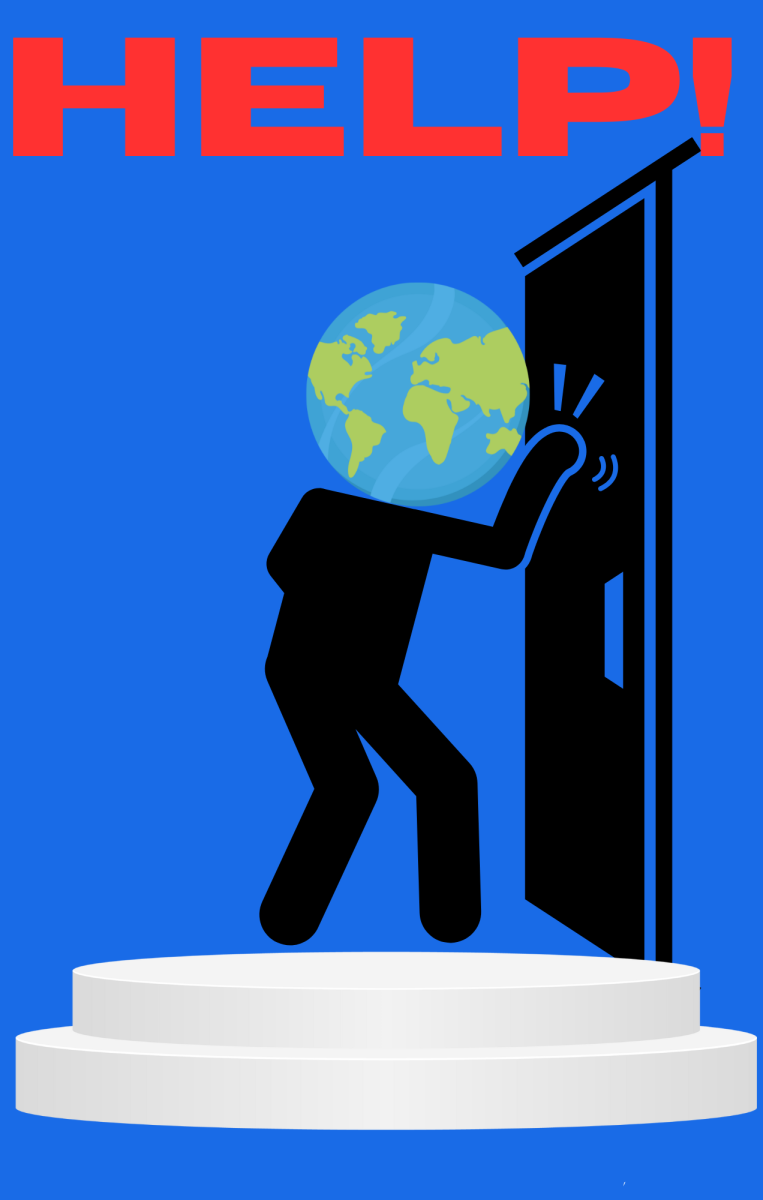Human-induced climate change, referring to long-term shifts in temperatures and weather patterns, has been an active problem within our society for much longer than many think. First discoveries were made as early as 1896 by scientists like John Tyndall or Svante Arrhenius, who conducted various experiments regarding emission of carbon dioxide and its ability to become trapped within the atmosphere. These discoveries laid the foundation for modern climate change research. Since then, research has continued, but climate change has also become substantially worse with an increase in the burning of fossil fuels, cutting down forests, and farming livestock.
“Climate change affects me mentally, making me question whether or not I’ll have a future,” Climate Change Club President Mia Rubinstein. “It brings up a lot of uncertainties for me.”
Since then, research has continued, but climate change has also become substantially worse with an increase in the burning of fossil fuels, cutting down forests, and farming livestock. More specifically, altering environmental patterns throughout Illinois.
Firstly, it has warmed Illinois as a whole by about 1.5°F since the 20th century, meaning that heatwaves are much more frequent during the summer and they are significantly warmer in general. Heat waves affect both Chicago and Skokie citizens by creating uncomfortable, hot environments, especially detrimental for those who cannot afford the high utility bills air conditioning contributes to.
To tackle the problem, the Village of Skokie has created cooling centers available to all vulnerable residents and has formatted a plan to create affordable, sustainable energy alternatives for citizens to implement within their houses, allowing them to afford the air conditioning desperately needed during heat waves while also bettering our community in terms of efficient energy.
Furthermore, frequent heat waves produce heat strokes, which can exacerbate preexisting conditions. Research indicates that heat-related hospitalizations in Illinois rose by 40% between 2000 and 2019. In addition, during these scorching summers, there is an absence of rain, producing severe droughts, which reduce the yields of crops like corn and soybeans. This ultimately leads to economic difficulties for the thousands of farmers in Illinois.
“Climate Change has impacted me in a few ways,” Science Department Director Dianna Yu said. “For one, it influences what I eat in terms of pricing and availability. But also, I think my allergies have gotten worse with the warmer temperatures.”
As temperatures increase throughout Illinois, the temperature of Lake Michigan, a major supply of drinking water, also rises. When the water warms, there are more algal blooms (increase in algae), which degrade water quality through its production of toxins and decomposition. This reduces levels of dissolved oxygen in the water, killing millions of fish. In relation to Lake Michigan, water levels reached a record high in 2020 and caused significant erosion along the shoreline, threatening infrastructure and property along the lakefront.
On the other hand, Illinois has faced record amounts of rainfall during the spring. In fact, over the past 100 years, Illinois has experienced a 25% increase in rainfall, resulting in not only agricultural damage but also flooding, which impacts infrastructure within communities. Throughout just 2019, almost 2 million acres of crops in total were flooded, hurting each farmer’s economic well-being and those who buy or consume the damaged crop.
In Skokie, extreme rainfalls result in the flooding of homes, streets, and sewer systems, which the Village of Skokie combated by creating a stormwater task force consisting of Skokie staff, residents, and stormwater engineer consultants that examined the existing stormwater infrastructure as well as Village ordinances and policies to identify potential action items to improve its stormwater management, as stated on the organization’s website.
In all, climate change has impacted Illinois weather patterns and, in turn, caused unprecedented events like flooding or frequent heat waves. Not only is the Village of Skokie working to solve the multilayered problem, but Niles North is also committed to counteracting it by various means. To begin with, over the past three years, our school has begun consolidating waste, which reduces methane emissions from landfills and lowers carbon emissions from transportation.
Next, they’ve added more water bottle filling stations, decreased the amount of plastic water bottles used by students, and implemented more LED-powered lighting, which uses less energy. In addition, they’ve added more solar panels that do not provide electricity for us to use directly but are a part of the production that feeds the grid we use, which again creates another source of energy instead of relying solely on fossil fuels. Finally, they continue to support clubs like Climate Change Club, which aims to counteract climate change in Illinois and educate students about climate change as a whole.
“This year, our club was able to create the Pollinators Garden, which provided a space for native plants to live, thrive, and be protected from invasive plant species,” Climate Change Club Co-president Lucy Emrich said. “By doing this, the plants grown are able to absorb carbon emissions and increase carbon storage in soil and plants, gradually stopping the progression of climate change.”
Although climate change might seem like an abstract concept that doesn’t affect you, the reality is that it does impact our country, state, and community. It’s the reason behind flooding and excess rain, the scorching heat for the sixth day in a row, and even the dead fish that float in Lake Michigan. It will continue to damage our community until we actively combat it. Remember, it is never too late to become involved in saving our sacred home, planet Earth.









